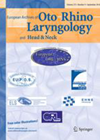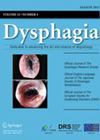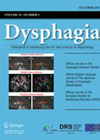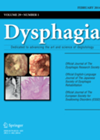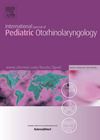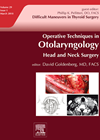
Journal Reviews
Dutch pharyngeal pouch surgery experience
A decade’s experience of pharyngeal pouch surgery was reported in this paper from Rotterdam. A total of 94 patients were analysed. The majority (80%) underwent an endoscopic approach, either with stapling or CO2 laser-assisted. Interestingly, 13 of 75 (14%) procedures...
Are there benefits of prophylactic swallowing exercises for patients with head and neck cancer?
This randomised controlled trial aimed to establish the impact of prophylactic swallowing exercises in patients undergoing chemoradiation therapy for head and neck cancer. The primary outcome was the functional oral intake scale (FOIS), although secondary measures for feeding tube use,...
Should patients with dysphagia be allowed water freely?
Patients with dysphagia often experience dehydration as a consequence of “nil by mouth” or having to consume thickened fluids due to aspiration of thin fluids. However, not all incidents of aspiration develop into an infection. Factors that contribute to aspiration...
Less pain more gain: impact of prophylactic gabapentin on swallowing outcomes in head and neck cancer patients undergoing radiation treatment
Patients planned for chemoradiation to the head and neck are usually advised to expect some pain and soreness during their treatment and that pain relief will be offered as and when it is required. Uncontrolled pain and mucositis affect oral...
Long-term swallowing function in bilateral vocal cord immobility
Vocal cord immobility is the second most common abnormality of the larynx in the paediatric population. The team from New York aimed to characterise the long-term swallowing function in a cohort of patients with bilateral vocal cord immobility over a...
Differing types of pharyngeal pouch
This article raised an eyebrow on the grounds that apparently more than one type of pharyngeal pouch exists! They differ in terms of aetiology, site and approach to treatment, therefore awareness of them is advised to ensure the appropriate surgical...

